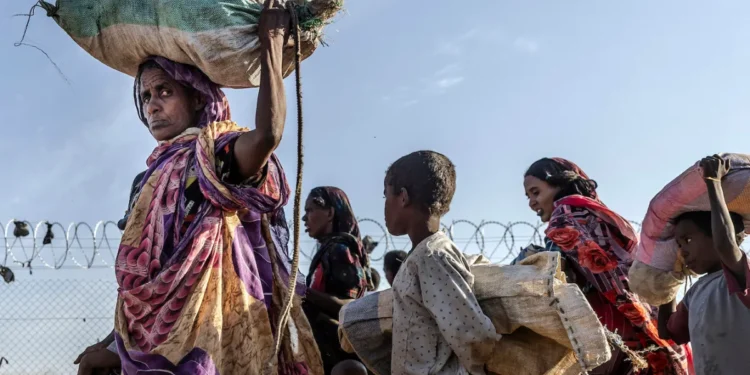By Ebi Kesiena
Sudan is currently struggling with a severe famine, worsened by ongoing conflict and political instability.
Earlier this week, the Sudanese Armed Forces (SAF), which claims to be the country’s legitimate government, took a minor step toward addressing the crisis by allowing 15 UN aid trucks to cross the border from Chad to deliver food to the starving population.
According to reports making the rounds on Sunday, aid organizations are hopeful that this gesture could pave the way for a broader relief operation that might save millions of lives. However, there is widespread concern that this effort is merely symbolic and comes too late to prevent widespread catastrophe.
Just four weeks ago, the Integrated Food Security Phase Classification (IPC), a UN-accredited system, confirmed that famine conditions were present in parts of Darfur, Sudan’s westernmost region. The humanitarian disaster in Sudan has been one of the largest in the world for months, with over half of the country’s 45 million people in urgent need of aid.
More than 12 million people have been displaced, including nearly two million who have fled to neighboring countries such as Chad, Egypt, and South Sudan. Food security experts fear that as many as 2.5 million people could die from hunger by the end of the year.
The roots of Sudan’s current hunger crisis are deep, stemming from decades of economic mismanagement, a legacy of brutal wars, and drought exacerbated by the climate crisis. However, the immediate cause of the famine is the deliberate use of starvation as a weapon of war.




































